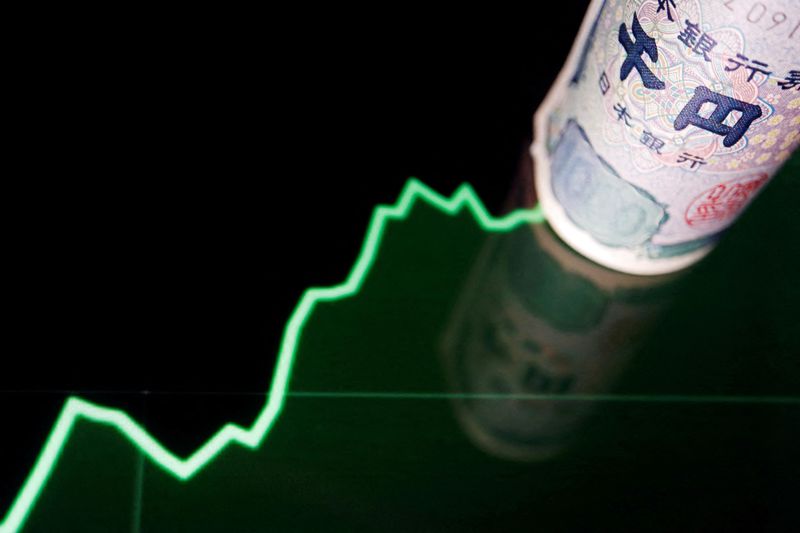Written by Brigid Riley and Kevin Buckland
TOKYO (Reuters) – Japanese stocks and the yen are expected to fall as exit polls suggest Prime Minister Shigeru Ishiba’s coalition government is on track to lose its parliamentary majority in Sunday’s general election, while long-term domestic Government bond yields are expected to rise.
Opinion polls suggest that the long-ruling Liberal Democratic Party and its junior coalition partner Komeito, or potentially another group, may be forced to enter a power-sharing agreement with other parties to form a government. It was suggested that there is.
The prospect of the scandal-plagued Liberal Democratic Party losing its sole majority has made Japan’s financial markets nervous in the run-up to the election. Anxiety grew as opinion polls just before the vote showed the coalition government itself could lose its majority.
“Political uncertainty from the election results could have a negative impact on investor sentiment and put pressure on the market in the short term,” said Samuel Huang, Japan fund portfolio manager at Eastspring Investments in Singapore. said.
In particular, if a minority party coalition is formed, market attention will be focused on the policy stances of potential opposition parties, many of whom support low interest rates. The market may also price in more aggressive government spending.
“If you want to show good teamwork, you need to spend more,” said Shoki Omori, chief Japan desk strategist at Mizuho Securities. “Fiscal policy is going to be a priority. That’s going to be the focus and I think it needs to be a big policy.”
Just one month after taking office, Ishiba has set his sights on maintaining a coalition government with the 233 seats needed for a majority in the House of Representatives, which is less than the Liberal Democratic Party’s 247 seats plus Komeito’s 32 seats.
Analysts at Morgan Stanley said in a note that the Coalition’s defeat could reduce the likelihood that the next government will implement “a more difficult agenda, such as increasing corporate tax rates.”
Due to this political uncertainty, the benchmark Nikkei stock average has fallen 2.7% last week, and the sell-off is likely to continue for the time being. Yields on Japan’s long-term government bonds rose on concerns about the government’s widening budget deficit. (JB/T)
The yen is already under pressure from rising U.S. bond yields, falling to the 152 yen level to the dollar for the first time in three months last week.
BNY analysts say the dollar could rise to 155 yen again as the Bank of Japan downplays the need for rate hikes in the near term and Japan’s election risks further fuel political instability. I predict that.
story continues
Mizuho’s Omori said, “The dollar-yen value is greatly influenced by U.S. statistics.The yen may sell off tomorrow as the election results may be seen as expected.” “You’ll be relieved that the event is over.”
Japan’s general election was held nine days before the counting of votes in the closely contested US presidential election, and investors are betting on a bullish dollar and rising yields if Donald Trump becomes president again and Republicans win the House and Senate. We are considering the possibility.
(Reporting and writing by Brigid Riley and Kevin Buckland in Tokyo; additional reporting by Vidya Ranganathan in Singapore; Editing by William Mallard)

